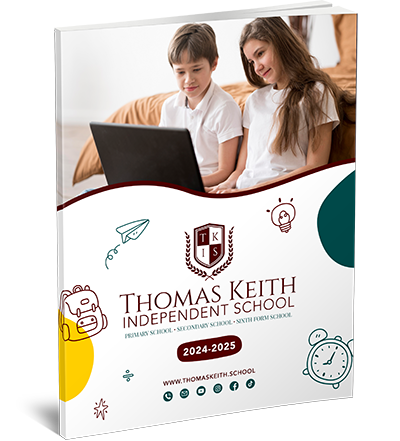
The Power of Online Learning for GCSE Maths and English: Revolutionising British Education
Online education has revolutionised how students learn worldwide, and the United Kingdom is no exception. The traditional classroom setting is being complemented and sometimes replaced by online platforms leveraging digital technologies. This article delves into the growing popularity and effectiveness of online learning for GCSE Maths and English. Discover the benefits it offers students and how it has transformed the educational landscape. You’ve come to the right place to learn more. Allow us to guide you about gcse maths and english online learning.
- The Benefits of Accessibility:
One of the significant advantages of online learning is its accessibility. Online GCSE Maths and English courses provide students with high-quality education, regardless of their geographical location. This is particularly advantageous for students in rural areas or those with physical constraints that hinder their participation in traditional classroom settings. Online learning levels the playing field, enabling individuals from all backgrounds to pursue their academic ambitions. - Adaptable Learning:
Traditional classrooms may not cater to every student’s unique learning style due to rigid schedules and frameworks. Online learning allows for flexibility and customisation. Students can learn at their own pace, revise challenging topics, or progress quickly through familiar ones. This personalised approach fosters confidence and deepens understanding.

- Customised Learning Experiences:
In a traditional classroom, teachers often have limited time to address individual student needs. Online learning platforms offer personalised attention through adaptive technology. By identifying students’ strengths and areas for improvement, adaptive learning tools provide tailored lectures and practice resources. This customised approach enhances learning outcomes by engaging and motivating students. - Interactive and Engaging Materials:
Online platforms provide a wealth of interactive and engaging resources for GCSE Maths and English. Students can immerse themselves in films, animations, quizzes, and virtual simulations, making the learning process enjoyable. Multimedia content caters to diverse learning styles, helping students grasp concepts effectively. Online platforms often incorporate gamification techniques to make learning both fun and captivating. - Real-time Feedback and Continuous Monitoring:
Unlike traditional education, online learning platforms offer real-time feedback, enabling students to track their progress instantly. Students can adjust their learning strategies based on this timely feedback, fostering a sense of ownership and accountability. - Expanded Learning Opportunities:
Online learning opens doors to a wide range of educational resources. GCSE Maths and English students can access e-books, research materials, and additional practice sessions to enhance their comprehension. Virtual study groups and online discussions enable students to form communities and collaborate with peers, fostering teamwork and a sense of belonging. - Overcoming Educational Barriers:
Online learning is a powerful tool for overcoming educational barriers. It provides flexibility and individualised attention for students with learning difficulties or language barriers. These platforms often offer text-to-speech or translation tools to accommodate diverse learning needs, ensuring that no student is left behind.
GCSE Maths and English education have completely transformed. Students may take control of their learning experience and achieve academic achievement thanks to its accessibility, flexibility, and customisation. As online learning evolves, educational institutions, educators, and governments must embrace this paradigm change and capitalise on its benefits to improve the future of British students.
- Improving Teacher-Student Relationships:
Contrary to popular belief, online learning promotes meaningful teacher-student interactions. Real-time chat, discussion boards, and video conferencing technologies enable teachers and students to connect and communicate effectively. Students can ask questions and engage in valuable discussions with their teachers, fostering a supportive learning environment. Teachers can provide timely feedback and personalised guidance, helping students overcome challenges and maximise their learning potential.

- Tracking Progress and Monitoring Performance:
Online learning platforms facilitate progress tracking and performance monitoring. Through detailed reports and analytics, teachers and students can gain insights into individual strengths and areas for improvement. Students can review their performance data, including scores, completion rates, and task duration, to evaluate their progress and plan effective study techniques. Teachers can utilise this data to identify patterns, adapt instructional methods, and provide tailored interventions to support students’ learning journeys. - Preparation for the Digital Future:
Online learning and digital literacy are essential skills in today’s increasingly digital world. By engaging in online GCSE Maths and English courses, students acquire digital skills and technical competence necessary for higher education and the workforce. They become adept at navigating virtual environments, collaborating online, and accessing digital information. These digital skills are transferable and beneficial across various academic subjects and industries that rely on technology. Online learning equips students with a competitive edge and prepares them for the rapidly changing digital landscape.

- Exam Preparation and Building Confidence:
Online GCSE Maths and English course enhances exam preparation. Platforms typically offer extensive review materials, practice examinations, and past papers, enabling students to familiarise themselves with the exam structure and practice answering questions under timed conditions. Self-assessment tools and prompt feedback help students identify areas of weakness, allowing them to focus on improvement. This focused approach builds confidence, reduces exam anxiety, and deepens knowledge and understanding. Students are better equipped for exams with access to a wide range of resources and personalised support. - Education for Life:
Online learning for GCSE Maths and English extends beyond exam success. It instils a passion for lifelong learning and provides students with a solid foundation for future education and professional growth. The digital nature of online learning ensures ongoing access to courses and materials beyond GCSEs. Students can pursue advanced topics, enrol in higher-level courses, or explore related fields of study. Additionally, online platforms offer professional development, language learning, and skill-building programmes, allowing individuals to broaden their horizons and continuously acquire new knowledge throughout their lives. Online GCSE Maths and English course serves as a catalyst for a lifetime of learning.
Online learning has transformed GCSE Maths and English education, offering students a unique and inspiring learning experience. Its accessibility, flexibility, and personalisation have revolutionised the educational landscape. Online learning also enhances teacher-student communication, enables progress tracking, and cultivates essential digital skills. As educational institutions and policymakers continue to recognise the significance of online learning, it is crucial to embrace its benefits and ensure its integration into the educational ecosystem, enriching the learning journeys of British students.







